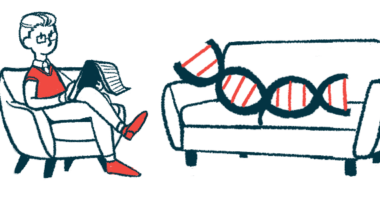Researcher honored for creating sickle cell pain management app
Mobile app aims to help young SCD patients self-manage chronic pain

A nurse clinician-scientist and professor at the University of Toronto, in Canada, is being honored for her work in developing iCanCope, a mobile app that aims to help in sickle cell disease (SCD) pain management.
Jennifer Stinson, PhD, was awarded the 2023 Barer-Flood Prize from the Canadian Institutes of Health Research (CIHR) for her efforts in the creation of the smartphone application, which can be used by young people with SCD, specifically children, to self-manage chronic pain.
“The app is really intended to be an adjunct to the care that young people with SCD receive in hospital,” Stinson said in a university press release.
“We know we cannot cure or alleviate the pain, but we can empower young people to live well with pain, and to manage it with resources and strategies that are effective, building their confidence in leading a fulfilling life,” Stinson said.
The Barer-Flood Prize, named for the first two directors of the CIHR Institute of Health Services and Policy Research, is given to the highest-ranked senior-career investigator who identifies as a woman in a CIHR grant competition. The award amount is $25,000. Stinson is planning to use the funding from the award to help implement the app at sickle cell clinics across Canada.
Users asked for a simple, safe mobile app for sickle cell pain management
Pain is a common symptom in sickle cell and its management can be difficult. The iCanCope app was co-designed by young sickle cell patients and clinicians to help them to better self-manage this symptom, which can result in pain crises.
The app contains four key features to help deal with pain: a module to track symptoms, a separate module to set structured goals for the future, a curated library of evidence-based educational resources, and a community discussion platform where young people with sickle cell can connect.
“The three main messages we heard in some of our initial consultations was that the app needed to be simple, provide a safe place for community engagement and discussion, and focus on living life, not just on pain,” Stinson said.
Algorithms in the app can help to nudge users who seem to be struggling to find appropriate resources to help them cope.
These kids [using the mobile app] will become young adults with persistent pain, and with iCanCope we are giving them the tools early in life to be able to manage their pain using appropriate coping techniques and strategies that improve their life satisfaction and well-being.
Stinson and colleagues have tested the app in a trial, which included 111 youths with sickle cell. After six months, patients using iCanCope reported 37% fewer days with pain than those given only education. Most of the young patients in the study said they would continue using the app and would recommend it to others.
“As a nurse practitioner in a chronic pain clinic, if I were to prescribe a digital health app, I would want to ensure that it was evidence-based, that it was co-designed and that it has been shown to improve outcomes,” Stinson said.
“Through our research and rigorous evaluations, we are helping care providers be more confident in prescribing iCanCope,” she added.
Stinson noted that the patients using the mobile app will need to deal with sickle cell pain management over the course of their lifetimes.
“These kids will become young adults with persistent pain, and with iCanCope we are giving them the tools early in life to be able to manage their pain using appropriate coping techniques and strategies that improve their life satisfaction and well-being,” Stinson said.







